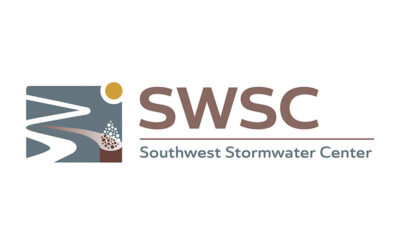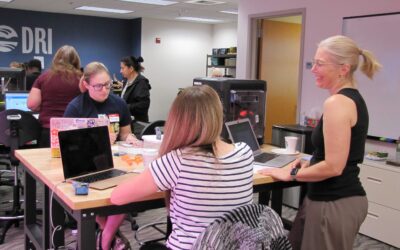Reno, Nev. (March 15, 2018) – Eighteen months ago, northern Nevada made history welcoming a first-of-its-kind, community-based population health study combining clinical, genetic and environmental data with the goal of providing personalized, precision medicine for individuals while improving health statewide.
The Healthy Nevada Project is making history again with the opening of phase two genomic sequencing to an additional 40,000 northern Nevadans, bringing the study’s total participation to 50,000 residents and making it one of the largest population health studies in the country. Project leaders are also sharing insights from the 10,000-person pilot study and announcing lessons learned, which are now being integrated directly into patient care.
When healthcare network Renown Health and the world leader in environmental sciences, the Desert Research Institute (DRI), partnered to launch this landmark project in September 2016, the response was unprecedented with 10,000 community members signing up in just 48 hours and DNA sample collection completed in 69 working days.
Today, research teams with Renown Institute for Health Innovation (Renown IHI) – a collaboration between Renown and DRI – announced the first findings from that 10,000-person pilot. Study researchers explained how care providers and scientists will begin working on a number of clinical programs and scientific studies focused specifically on Washoe County’s high age-adjusted death rates for heart disease, cancer and chronic lower respiratory disease. Collectively, these conditions among local residents stand at 33 percent above the national rate.
In the coming months, Renown IHI will begin providing advanced calcium score screenings to pilot phase participants at higher risk for cardiovascular disease. This will allow researchers to examine the link between genetics and calcium buildup in the heart. Additionally, based on pilot phase data, researchers have seen increased use of regional healthcare correlated with fluctuations in air quality and so-called “bad air events” such as wildfires and atmospheric inversions. In phase two, Renown IHI will evaluate possible links between genetics and increased susceptibility to respiratory ailments.
“From the start, this project has been focused on improving health statewide. We are now not only seeing those results, but also acting on them,” said Anthony Slonim, M.D., DrPH, FACHE, president and CEO of Renown Health and president of Renown IHI. “Healthcare organizations around the country are moving from solely providing care inside hospital walls to improving health outcomes across communities. It starts with health literacy, and this is the largest health literacy project in the country. We are helping people understand their risks and getting involved at the clinical level to help them live healthier lives.”
Leveraging Renown’s forward-thinking approach to community healthcare and DRI’s data and environmental expertise, Renown IHI has evolved and grown its capabilities to lead a larger, more complex research study of significance that will analyze and model public health risks in the Silver State and serve as a model for future population health studies across the country.
“Nevada is leading the country in growth and innovation. But sadly, we continue to rank among the worst in regards to health at 47th in the nation,” said Nevada Gov. Brian Sandoval, the pilot study’s first participant. “Through the Healthy Nevada Project, we now have the gift of insight to make needed changes not just for ourselves and our loved ones, but for Nevada.”
For the second phase of this monumental project, research teams will have greater depth and quality of DNA data thanks to a partnership with Helix, a personal genomics company that uses Next Generation Sequencing (NGS) technology instead of genotyping and operates one of the world’s largest CAP- and CLIA-accredited exome sequencing labs. The Helix.com marketplace model will also enable the Healthy Nevada Project to work with other research groups and industry-leading companies at the forefront of using genetics to drive better health outcomes.
“Taken individually, environmental, genetic and clinical data are each powerful tools for advancing health. But a comprehensive picture of these data can be even more powerful – finding new risk factors within populations and further improving community health,” said James Lu, M.D., Ph.D., co-founder and senior vice president of Applied Genomics at Helix. “Each person who chooses to participate in the Healthy Nevada Project will be contributing their genetics to better scientific understanding and ultimately, helping everyone live longer, healthier lives.”
In phase two, an additional 40,000 Nevadans are invited to test using Helix’s proprietary NGS pipeline. Helix’s Exome+ assay testing reads all 20,000 protein-coding genes and other regions in the body important to providing genetic insights which allows for 100 times more data.
Study volunteers will take Helix’s DNA saliva test and automatically receive access to the popular Helix-powered ancestry app, Geno 2.0 by National Geographic, and a Helix.com account that lets them explore additional DNA-powered products on the Helix App store. If study participants choose to complete a follow-up survey from the Healthy Nevada Project, they will have the chance to pick an additional health and wellness app specific to their individual genetic results.
Renown IHI is opening 10,000 testing slots to any northern Nevadan interested in taking part. Once those 10,000 slots are filled, researchers will focus on matching the demographics that comprise northern Nevada. This means study participants will be eligible based on specific demographic variables including: gender, age group, ethnicity and rural versus urban residents.
“Fitting these criteria will ensure this landmark population health study mirrors the people of northern Nevada,” said Joseph Grzymski, Ph.D., senior director of the DRI Applied Innovation Center; co-director of Renown IHI; and principal investigator of the Healthy Nevada Project. “Thanks to years of research, we know gender, age and ethnicity all play key roles in a person’s health risks. By accurately representing our region, we will be able to better understand the health issues we’re seeing communitywide and how to address them.”
In the years ahead, Renown IHI aspires to offer genetic testing through the Healthy Nevada Project to every Nevadan interested in learning more about their health and genetic profile, and ultimately, drive positive health outcomes statewide. Simultaneously, the Healthy Nevada Project will expand the state’s access to leading-edge clinical trials and foster new connections with biotechnology and pharmaceutical companies.
To see if you are eligible to participate in the study, to sign up for study updates and for full details on the Healthy Nevada Project, please visit HealthyNV.org.
###
Renown Institute for Health Innovation is a collaboration between Renown Health – a locally governed and locally owned, not-for-profit integrated healthcare network serving Nevada, Lake Tahoe and northeast California; and the Desert Research Institute – a recognized world leader in investigating the effects of natural and human-induced environmental change and advancing technologies aimed at assessing a changing planet. Renown IHI research teams are focused on integrating personal healthcare and environmental data with socioeconomic determinants to help Nevada address some of its most complex environmental health problems; while simultaneously expanding the state’s access to leading-edge clinical trials and fostering new connections with biotechnology and pharmaceutical companies. Learn more at www.healthynv.org.
Helix is a personal genomics company with a simple but powerful mission: to empower every person to improve their life through DNA. We’ve created the first marketplace for DNA-powered products where people can explore diverse and uniquely personalized products developed by high-quality partners. Helix handles sample collection, DNA sequencing, and secure data storage so that our partners can integrate DNA insights into products across a range of categories, including ancestry, entertainment, family, fitness, health and nutrition. Helix is headquartered in the San Francisco Bay Area and operates a CLIA-and-CAP-accredited Next Generation Sequencing lab in San Diego, powered by Illumina (NASDAQ:ILMN) NGS technology. Helix was founded in 2015 with support from Illumina, its largest shareholder. Learn more at www.helix.com.


